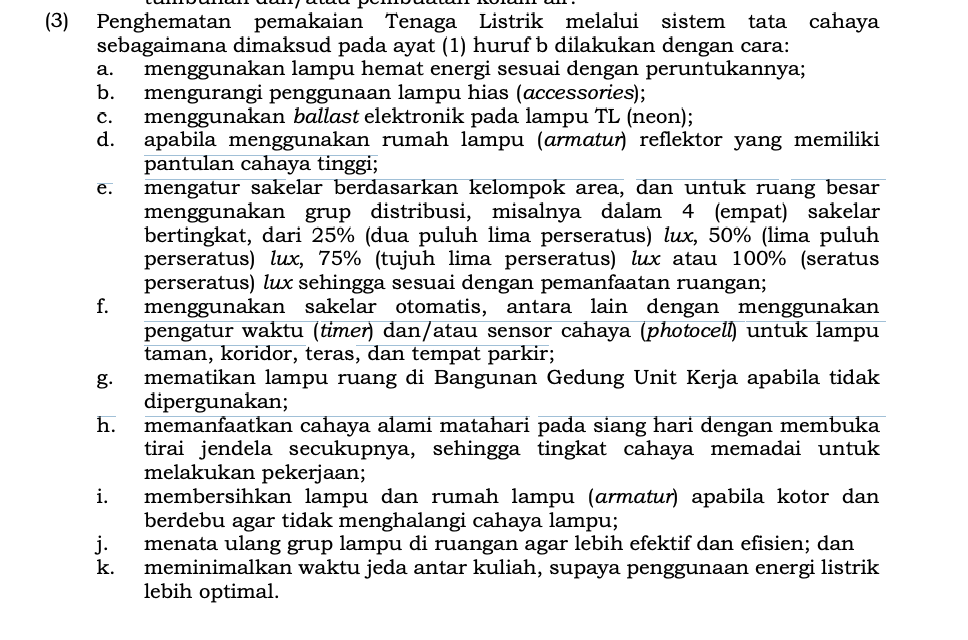An energy efficiency plan is necessary for creating a sustainable and environmentally responsible campus. By reducing overall energy consumption, Universitas Gadjah Mada can minimise its carbon footprint, lower operational costs, and promote eco-friendly practices. The use of energy-efficient equipment is a key component of any energy efficiency plan. Since the plan outlines strategies to optimise energy use, integrating energy-efficient equipment is one of the most effective ways to achieve this. Energy-efficient equipment, such as LED lighting, consumes significantly less energy compared to traditional equipment. Using efficient equipment leads to sustained energy savings over time, which would help UGM meet its energy reduction targets.
UGM has pledged to use energy-efficient equipment for all buildings and facilities on campus. The program to use new electrical equipment in UGM buildings has been implemented gradually over the past seven years, particularly the use and maintenance of lighting and air conditioning equipment in a more energy efficient manner.
Based on the table below, UGM has implemented energy-efficient equipment for 81.47% of its existing appliances. This resulted in broader energy savings compared to conventional appliances in 2023, thus, the university has an effective strategy for promoting energy efficiency.

UGM intends to further realise energy savings by focusing on energy management. All parts of the organisation can assess their energy consumption and realise their energy-saving potential using, for example, insulation, LED lighting, and sustainable technologies.
In the Rector’s Regulation Number 2 Year 2022, UGM mandates the use of energy efficient appliances in Article 16 Paragraph 3. The article states electricity savings through energy-efficient appliances and effective lighting management can be achieved by using energy-saving lamps, reducing decorative lighting, and employing electronic ballasts for fluorescent lights. High-reflectance light fixtures maximise brightness, while area-specific and multi-level switch systems allow precise control of lighting based on room usage. Automatic switches, such as timers and light sensors, optimise outdoor lighting in areas like gardens, corridors, and parking lots. Additionally, turning off unused lights, utilising natural daylight by opening curtains, and regularly cleaning lamps and fixtures enhance efficiency. Rearranging light groupings and minimising idle time between classes further optimise electricity use.


In 2023, UGM undertook significant upgrades by replacing and adding energy-efficient air conditioning units and lighting fixtures, installing a total of 100 new energy-saving AC units and 943 energy-efficient lights. This initiative reflects UGM’s commitment to enhancing energy efficiency on campus. The upgrades led to efficiency rating improving from 80.27% in 2022 to 81.47% in 2023, demonstrating a positive trend in the university’s efforts to reduce energy consumption and promote sustainable practices.
Reference:
Rector’s Regulation Number 2 Year 2022
